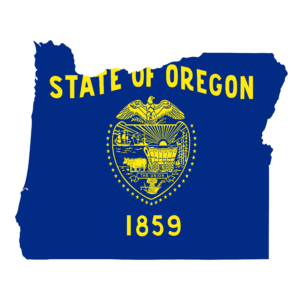EPR Legislation: Where are we headed in 2024?
In response to the escalating challenges posed by plastic waste and environmental degradation, governments and industries are turning to innovative solutions to address the lifecycle impact of packaging materials. Extended Producer Responsibility (EPR) has emerged as a pivotal strategy, particularly within the plastic industry. EPR is a policy approach that places the responsibility for the entire life cycle of a product, including its packaging, squarely on the shoulders of the producers. This paradigm shift encourages producers to adopt sustainable practices, driving the integration of environmentally friendly strategies into product design, manufacturing, and end-of-life management.
With EPRs come Producer Responsibility Organizations (PROs). PROs are entities established to oversee and implement EPR programs. They help bridge the gap between economic interests and environmental stewardship. These organizations act as catalysts for change, encouraging producers to adopt eco-friendly practices, invest in research and development of sustainable materials, and optimize end-of-life management processes.
Currently, four states – California, Colorado, Maine, and Oregon – have enacted legislation requiring either EPR or PROs or both. Funds raised through membership in these PROs will be used in different ways to further the efforts to reduce plastic pollution.
Where are they in their efforts?

CALIFORNIA
Earlier this month, California approved Circular Action Alliance (CAA) to serve as a PRO for the implementation of S.B. 54 which established an EPR program to manage packaging and single-use plastic food ware products across every sector of the economy requiring producers to ensure that the packaging and plastic foodware sold in California is recyclable or compostable.

COLORADO
- Colorado’s needs assessment, which was required under it’s Producer Responsibility Program for statewide Recycling Act, is due at the end of this month to develop a list of material categories as well as criteria with which to screen the material categories, to determine whether each material should be added to the Minimum Recyclable List. It is being conducted by CAA, Colorado’s designated PRO, and HDR Engineering.
- Colorado held 4 virtual stakeholder meetings on the proposed rules for producer responsibility over the last month and a second round of stakeholder meetings will be announced after the Division has reviewed comments submitted from the first round. A formal rulemaking hearing will take place on May 21st of this year.

MAINE
Maine has initiated rulemaking for their Stewardship Program for Packaging where producers of products must pay into a fund based on the amount and the recyclability of packaging associated with their products and those funds will be used to reimburse municipalities for eligible recycling and waste management costs, make investments in recycling infrastructure, and help Maine citizens understand how to recycle. The adoption of these rules is anticipated this summer.

OREGON
- Oregon completed it’s first round of rulemaking late last year, establishing the rules defining “responsible” end markets and requiring PROs to manage materials accordingly. A second round of rulemaking that is expected to address product exemptions and environmental impact evaluation among other things, is underway.
- Oregon PROs will need to submit an EPR plan to Oregon’s Department of Environmental Quality by March 31, 2024, and begin implementation by July 1, 2025.
EPR/PRO Legislation is a trend, and we can expect additional states to follow the precedent being set already:
• 10+ more States are considering
• Several States are currently conducting needs assessments
• A federal US packaging PRO bill is also being considered
Are you ready to redefine possible?
If you’re interested in staying ahead of the curve on EPR legislation and incorporating sustainable practices into your business, contact us today to see how we can help. Call Rick Filiault at 704.999.3825 or Contact Us
